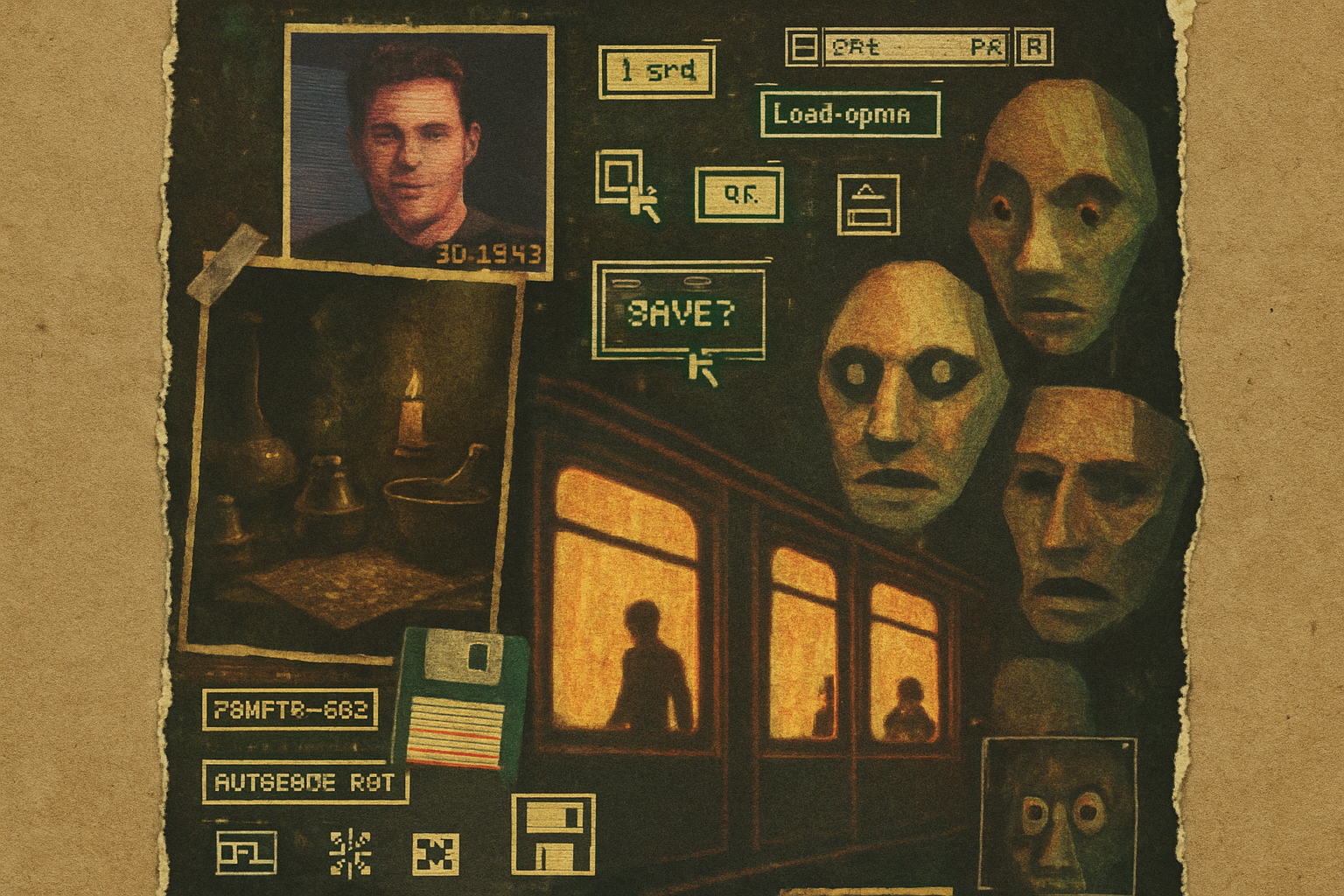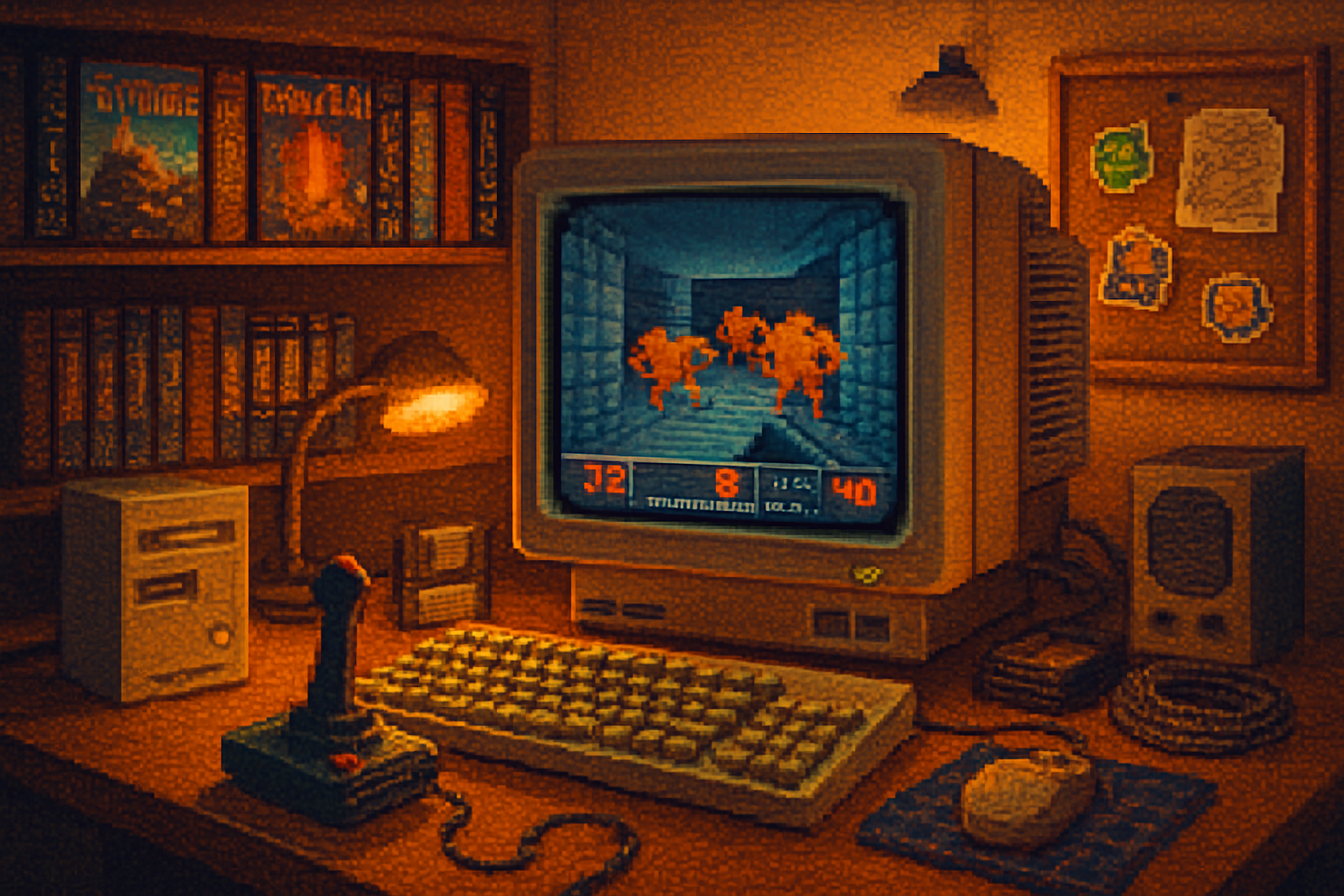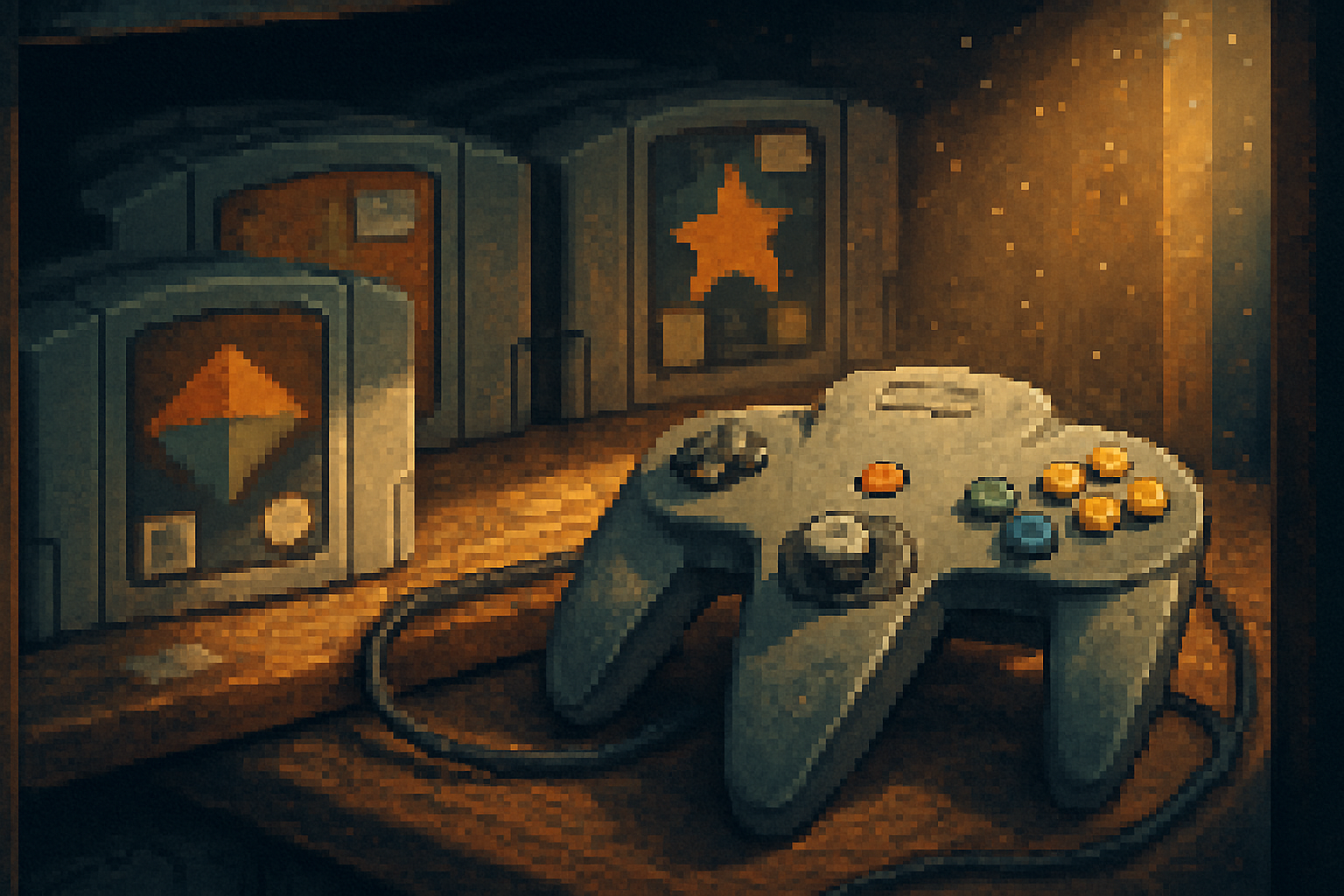· retrogaming · 7 min read
Hidden Gems: The Best Retro PC Games You Probably Never Played
A deep dive into underrated PC titles from the 1980s and 1990s - games that underperformed in their day but offer bold design, strange narratives, and mechanics worth rediscovering today.

Introduction
The 1980s and 1990s were a wild, experimental era for PC gaming. Big franchises and household names emerged, but tucked between the blockbusters were dozens of titles that tried something different - unusual mechanics, mature or twisted stories, and technical innovations that were ahead of their time. Many of these games failed commercially or were overshadowed by consoles and competing PC hits, but they remain fascinating to play today.
Below are ten underrated retro PC games - some obscure, some cult favorites - that deserve a second look. For each title you’ll find what makes it special, why it was overlooked, how to play it now, and where it fits into gaming history.
Selection notes
I focused on PC releases from the ’80s and ’90s (DOS/early Windows/MS-DOS era), prioritizing games that tried unusual mechanics or narratives and that are still accessible either via re-releases or emulation. Where possible I linked authoritative references and preservation resources.
- The Pawn (1985) - Magnetic Scrolls - parser fiction with graphical polish
- What it is - A sophisticated interactive-fiction game that layers a text parser with illustrated scenes and advanced (for the time) NPC behaviors. See the game’s entry
- Why it stands out - The Pawn blended richly written text-input interactivity with evocative visuals and a sense of place that many parser games lacked. It treated puzzles as part of a consistent world rather than arbitrary gatekeeping.
- Why it was overlooked - Parser games were quickly eclipsed by point-and-click adventures in the late ’80s and early ’90s. Magnetic Scrolls’ output remained niche compared with Sierra and Lucasfilm.
- How to play today - Scans and re-releases can be found in archive collections; emulation and interpreter projects for classic interactive fiction can help. For context on Magnetic Scrolls’ work, see their
- Darklands (1992) - MicroProse - an unusual historical RPG
- What it is - An open-ended RPG set in a low-magic version of 15th-century Germany mixing history, folklore, and occult themes. Reference:
- What it stands out - The game models travel, reputation, religion, and alchemy in ways few RPGs attempted at the time. Its campaign is nonlinear and sandbox-like - you can join guilds, discover cults, or run mercenary errands.
- Why it was overlooked - Complex systems, bugs at launch, and a marketing push that couldn’t compete with other CRPGs kept it niche. The historical setting was also less immediately appealing than fantasy tropes.
- How to play today - DOSBox compatibility and fan patches improve playability. GOG and preservation communities often host or document ways to run it.
- The Last Express (1997) - Jordan Mechner - realtime narrative on the Orient Express
- What it is - A fully-realized realtime adventure set on the eve of World War I, notable for its rotoscoped art and a story that unfolds whether you watch or not. See
- What it stands out - The game’s clockwork timeline, layered character motives, and the knowledge that events progress in real time create intensity and consequence rarely seen in adventure games.
- Why it was overlooked - Its release in 1997 coincided with an industry moving toward 3D action and blockbuster titles. Complex production costs and limited marketing meant it didn’t reach a wide audience.
- How to play today - A remastered version and community patches exist; it’s also available on GOG. The game is often praised in retrospective essays (search community preservation sites and interviews with Jordan Mechner).
- Harvester (1996) - DigiFX - FMV horror that went too far
- What it is - A low-budget FMV (full-motion video) horror/adventure that embraces shock, black comedy, and surreal storytelling. See
- What it stands out - Its unusually grotesque and R-rated content, and an atmosphere of social satire wrapped in a point-and-click format.
- Why it was overlooked - Controversial content limited mainstream appeal and distribution; the game’s rough edges and hardware constraints made it polarizing.
- How to play today - Playable under DOS emulation; communities keep FMV titles alive with guides and patches.
- Ecstatica (1994) - Andrew Spencer Studios / Psygnosis - primitive 3D with a nightmarish twist
- What it is - A horror action-adventure that used a unique ellipsoid-based 3D character engine to create contorted, creepy visuals. See
- What it stands out - The world is both dreamlike and grotesque; the graphics approach gives characters an uncanny, almost expressionist look. The design dared to be more surreal and adult than many contemporaries.
- Why it was overlooked - Sales were modest, and the odd visuals divided players used to more conventional sprite-based or polygonal art.
- How to play today - Requires DOS emulation; the game is still discussed in retro-horror circles and occasionally appears on abandonware and archive sites.
- I Have No Mouth, and I Must Scream (1995) - The Dreamers Guild - an unflinching, literary adventure
- What it is - A point-and-click adventure adapting Harlan Ellison’s short story, with a heavy emphasis on moral puzzles and bleak narrative. See
- What it stands out - The game focuses on flawed characters, ethical dilemmas, and an oppressive AI antagonist. It’s less about inventory puzzles and more about psychological choices.
- Why it was overlooked - Its uncompromising, dark tone and mature subject matter made some players uncomfortable; commercial reach was limited.
- How to play today - The title has seen re-releases and is preserved in adventure-game archives - community guides help with branching endings.
- Betrayal at Krondor (1993) - Dynamix/Sierra - literary-feeling CRPG
- What it is - A narrative-driven RPG inspired by Raymond E. Feist’s Riftwar novels; it features an engaging story and notable writing for a CRPG. See
- What it stands out - Strong writing, novelistic quests, and clever dialogue sequences make it feel like interactive fantasy fiction rather than a loot treadmill.
- Why it was overlooked - Competing CRPGs with bigger budgets (and more polish) overshadowed it. Still, it cultivated a loyal fanbase.
- How to play today - The game has been preserved and remade/fan-patched by communities; it’s an often-cited “hidden classic” in CRPG retrospectives.
- The Feeble Files (1997) - Adventure Soft - a cynical sci-fi comedy adventure
- What it is - A point-and-click that skewers corporate culture and bureaucracy with British humor and satirical writing. See
- What it stands out - The humor is dark, sharp, and very British, and the puzzles play into absurdist scenarios that still hold up.
- Why it was overlooked - Released late in the heyday of classic adventures and sold into a shrinking market; it missed the golden distribution windows.
- How to play today - DOS-era adventure preservation projects and community guides make it playable via DOSBox; it’s also often discussed in adventure-game retrospectives.
Why these games matter now
- Experimental mechanics - Many of these titles tried systems you don’t often see in modern hits - realtime narrative flow, hybrid parser/GUI interfaces, simulated social systems, or bizarre rendering techniques.
- Mature storytelling - Writers and designers used the PC platform to tell stories that were darker, stranger, or less commercial than console fare.
- Preservation lessons - The difficulties these games faced commercially often mirror modern indie risk - interesting design doesn’t guarantee sales.
How to get started (legal and practical tips)
- Re-releases and storefronts - Check GOG.com for remastered or packaged classic PC titles (GOG restores installers and DOSBox settings for many old games) -
- Emulation - DOSBox (
- Adventure preservation - ScummVM (
- Community patches and guides - Search fan forums, Reddit retro-gaming communities, and preservation archives for modern fixes, widescreen patches, and walkthroughs.
Further reading and sources
- Individual game entries on Wikipedia - The Pawn, Darklands, The Last Express, Harvester, Ecstatica, I Have No Mouth…, Betrayal at Krondor, The Feeble Files (
- Preservation and emulation projects - DOSBox (
Closing thoughts
If you remember the era for its iconic franchises, consider spending an evening with one of these lesser-known titles. They may be rough around the edges, but that’s often where the most interesting design choices hide. Whether you want moral quandaries, realtime storytelling, historical sandboxing, or outright weirdness, the forgotten corners of PC gaming history are still full of surprises.
Play smart - check legal re-releases first, then turn to emulation and fan patches if necessary. And if you love what you find, consider sharing the experience: recommending and preserving obscure classics helps ensure they remain playable for the next wave of curious players.
References
- The Pawn - https://en.wikipedia.org/wiki/The_Pawn
- Darklands - https://en.wikipedia.org/wiki/Darklands_(video_game)
- The Last Express - https://en.wikipedia.org/wiki/The_Last_Express
- Harvester - https://en.wikipedia.org/wiki/Harvester_(video_game)
- Ecstatica - https://en.wikipedia.org/wiki/Ecstatica
- I Have No Mouth, and I Must Scream (game) - https://en.wikipedia.org/wiki/I_Have_No_Mouth,_and_I_Must_Scream_(video_game)
- Betrayal at Krondor - https://en.wikipedia.org/wiki/Betrayal_at_Krondor
- The Feeble Files - https://en.wikipedia.org/wiki/The_Feeble_Files
- DOSBox - https://www.dosbox.com/
- ScummVM - https://www.scummvm.org/

